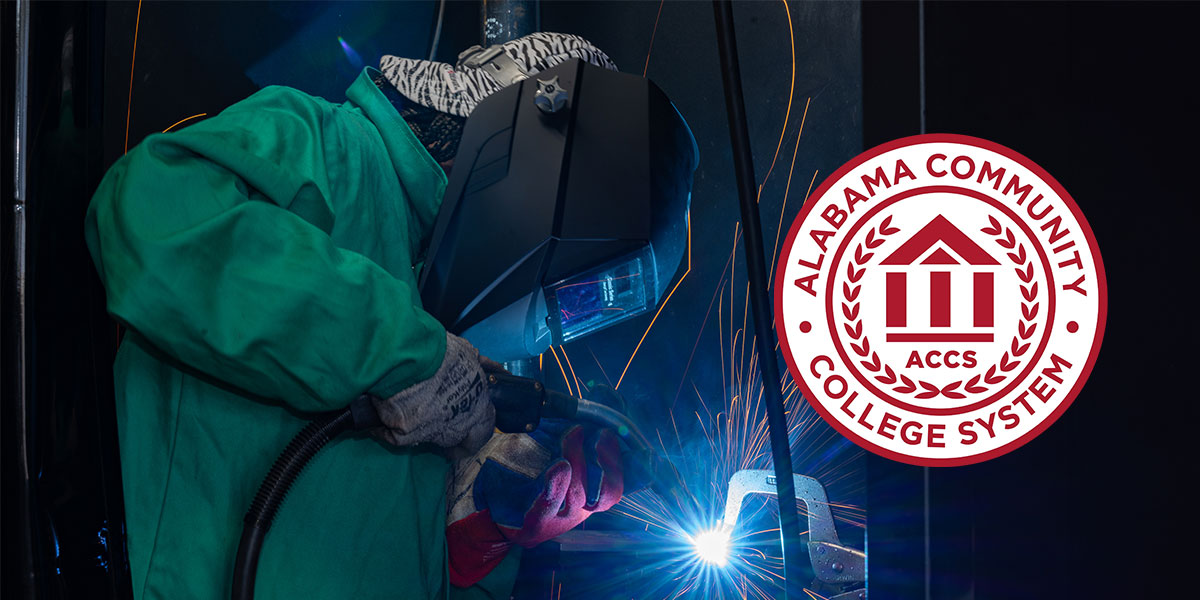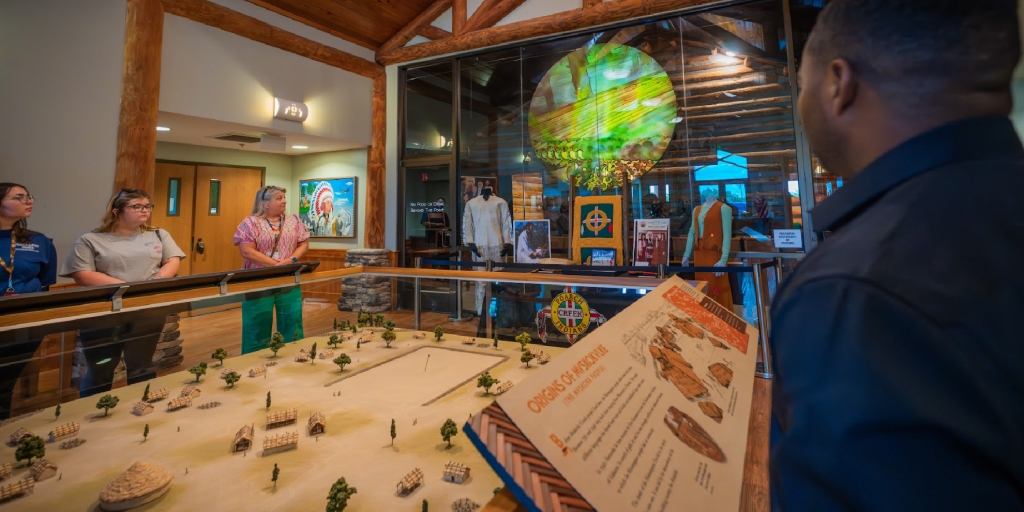Across Alabama, businesses of all sizes are facing a crucial challenge: Finding skilled workers.
More than 5,000 businesses who collaborate with the Alabama Community College System to train workers know this fact: Every in-demand position within the state of Alabama can be started with training from one of Alabama’s community and technical colleges.
Amy Price, Chief Nursing and Chief Operating Officer of Coosa Valley Medical Center, said a nursing apprenticeship collaboration the medical center has with Central Alabama Community College is an example of how integral community colleges are to workforce development in the state.
“You can imagine, being a freestanding, rural hospital, partnerships are very important to not only our existence but to our sustainability, and so when we look over our partnerships, I can’t think of one that’s more important to us today than the good work community colleges are doing in their programs,” she said.
“It’s really paying off in terms of putting people to work with credentials to meet the demands of healthcare today.”
Austal USA recently partnered with the Alabama Community College System to create a pre-apprenticeship training program. Rodney Patrick, Austal USA Director of Human Resources, said, “You have so many people in your backyard just waiting for a change. Austal has so many jobs and so many opportunities. We don’t want to go out to find work when we have workers right here in Alabama. That’s why it’s so important to partner with Bishop State.”
By partnering with businesses, schools, and individuals, the ACCS is making a tangible difference, as evidenced by the nearly 155,000 students who study through the colleges’ academic and workforce development programs. More than 440,000 residents have started their education journey with core, transferable classes at local community colleges in the last decade, significantly impacting the state’s healthcare and transportation industries.
Shannon Jackson, Director of Corporate Services at Southeast Gas, said the ACCS Innovation Center’s customized Skills for Success programs are both critical and timely to the work energy companies are doing across the state.
“Having every member of our construction crew CDL-certified is invaluable. What would have been three to four weeks, and at a cost, Skills for Success and LBW Community College gave us the opportunity to train students faster and at no cost,” she said.
Building Alabama’s future workforce requires a collaborative effort. Among the reasons thousands of companies choose the ACCS for workforce training is the community college system’s model of bringing business and industry “to the table” when developing workforce programs. Whether apprenticeships, such as those offered in manufacturing through the Alabama Federation for Advanced Manufacturing Education (F.A.M.E.) program, or the rapid Skills for Success programs through every community and technical college in the state, the feedback of business and industry is embedded into the training curricula so that students are literally training for their future careers.
“Investing in the Alabama Community College System is an investment in Alabama’s future, as local community colleges are the most stable element for workforce development across the state to consistently have an open door for everyone,” said System Chancellor Jimmy H. Baker. “The system’s commitment to building a skilled workforce strengthens not just individual lives, but also the overall economic well-being of the state. As Alabama continues to evolve, our system is poised to remain a crucial partner in its success.”
Beyond customized training, ACCS boasts a robust dual enrollment program, allowing high school students to earn college credit while still in high school. This head start on their education prepares them for a smooth transition to the workforce or further studies.
The ACCS’s commitment to workforce development extends to adult learners. Adult education programs provide individuals with the opportunity to upskill or reskill, making them more competitive in the job market.
The Alabama Community College System is composed of 24 community colleges in more than 130 locations, benefitting nearly 155,000 Alabamians through various certification, credential, dual enrollment and degree programs.











